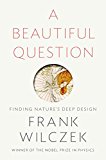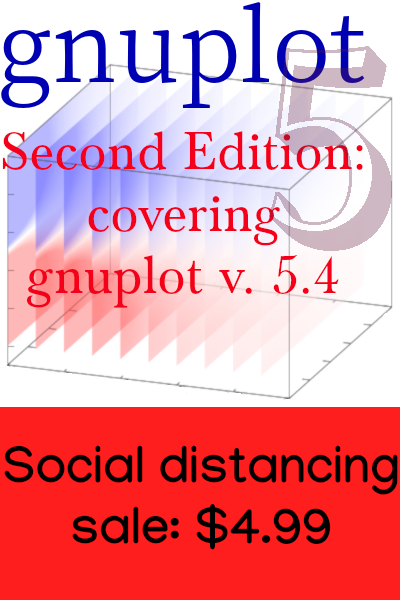Why Should I Pay to Read This?
I put some of my short pieces here on my personal web site, where they are free to read. Others get published in various places, in print or on the web. Some of the web publications are free to read, while others charge a subscription fee. There are also hybrid situations, where you can pay for some kind of enhanced experience or extra access.

My articles are regularly discussed on Hacker News, Slashdot, and sometimes elsewhere. If the article happens to be behind a paywall, I can count on seeing a standard comment, to the effect of, “Why should I pay to read this? There are plenty of free sources of information on the web.”
I have a lot of sympathy for the attitude behind these comments, frankly. Why should you pay?
A price tag is no guarantee of quality. There’s plenty of superlative free stuff on the web, and an endless supply of garbage that costs money to wallow in. I just want to describe some of what goes in to my published articles, so you have a better idea of why it may not be utterly unreasonable to be asked to pay for them.
As we all know, free stuff is often only free on the surface. You may be paying by subjecting yourself to insidious forms of tracking and surveillance. But often you become a paying customer only to be tracked and advertised to anyway, while some free websites, such as this one, refuse to incorporate any tracking technology at all, even anonymized analytics, because we respect our readers and their privacy. The bottom line here is that whether material is free or not is not a reliable guide to privacy online.
I’m not going to tell you that you should shell out and be happy about it. That’s for you to decide. My main purpose here is to describe what you are getting when you do pay—because you are getting something, in general, different from what you get when you consume free content.
Here is the typical life cycle of one of my articles. I get an idea for something that I think would interest the readership of a particular venue, and work up a proposal to convince an editor to agree with me. This will explain why they should publish it and contain an outline, or the equivalent, of its contents, and some other details, such as the proposed length. I send this off and wait. Some editors respond within a day, others take a few weeks, and some never write back. (By the way, everything in this world, as with most communication among adults, takes place by email.)

If they want to run the piece, we negotiate length, deadline, payment, and maybe some details of content and form.
Then comes the research phase. This varies a lot depending on the subject. I read things online, interview people by email or, now and then, by phone, experiment with software systems, create illustrations, search for illustrations that are public domain or CC licensed, get permission to use illustrations that are not, read books, and even, on occasion, get up out of my chair and visit a place, sometimes with a camera.
Then I write. I always write too much. If I have agreed to deliver something with 2000 words, my first draft will have 4000. I’m probably writing too much now. Sorry.
So now begins the painful phase of cutting out sentences and paragraphs. Although I know that each amputation makes the thing more focussed and streamlined, each excision feels like drowning a puppy. My words want to live!
About this time, my editor will write, asking what’s going on, and I will reply with a firm promise of a delivery date.
I smooth, pare, rewrite, proofread, rewrite, check and recheck facts and links, and rewrite.
Hours, days, or weeks after delivery, the draft comes back with edits, suggestions, and questions. Edits, you say? But my words were perfect! Begrudgingly, I find myself agreeing some of the time: yes, OK, it is clearer that way. Other times, not so much. But I have learned what battles are worth fighting. Just remember, if you are reading something of mine and a comma seems out of place, it wasn’t me.
Before you see one of these articles, it has been gone over by two, three, or four people. Facts are checked, links are scrutinized, other helpful linkages are suggested, word choice is mulled over, punctuation is adjusted, typography is made consistent, tone is worried over.
Finally, it is ready. Almost: “Can you redo these figures with a white background? And smaller?”
That’s the process. These people are all serious about this business. They care very much about quality. They need to preserve the reputation of the publication. They trust me, but they verify. These are their jobs; they need to get paid.
I hope you have a little better idea of what goes into these articles now, and may be a little less outraged by the idea that you might be asked to support these organizations. Naturally, I think the results are high quality, in a different league from the typical free stuff on the web.
Of course, this is not universally true. Some people writing on their personal websites take comparable care. Paul Graham, for example, obviously hones his essays with skill and patience, and has other people read them before putting them on his site. However, that level of attention and seriousness is very much the exception. Most people seem to regard their own writing as something eminently disposable.

I am acutely aware of the economic problem here. As a reader and a researcher, my main problem with paying to read is the sheer number of publications that I have to consult. I can’t afford a monthly subscription to all of them. As many others have said, this situation badly needs some system of micropayments. We should be able to pay a few cents for that one article that we need to read, or $20 per month to some kind of service, rather than $1000 per month to subscribe to all the websites that we might occasionally want to consult.
(I need to mention, in passing, that I’m not talking about the related but different issue of research journals, where you are typically asked to pay $30 to see a single article. This is a problem for me, now that I don’t have institutional access to these journals. Authors don’t get any piece of this cash, and normal people don’t pay these prices. Fortunately, there are numerous routes around these paywalls.)
Obviously, I am fantastically biased. The more people who buy subscriptions to online publications, the better for me. But that doesn’t mean I’m wrong.



